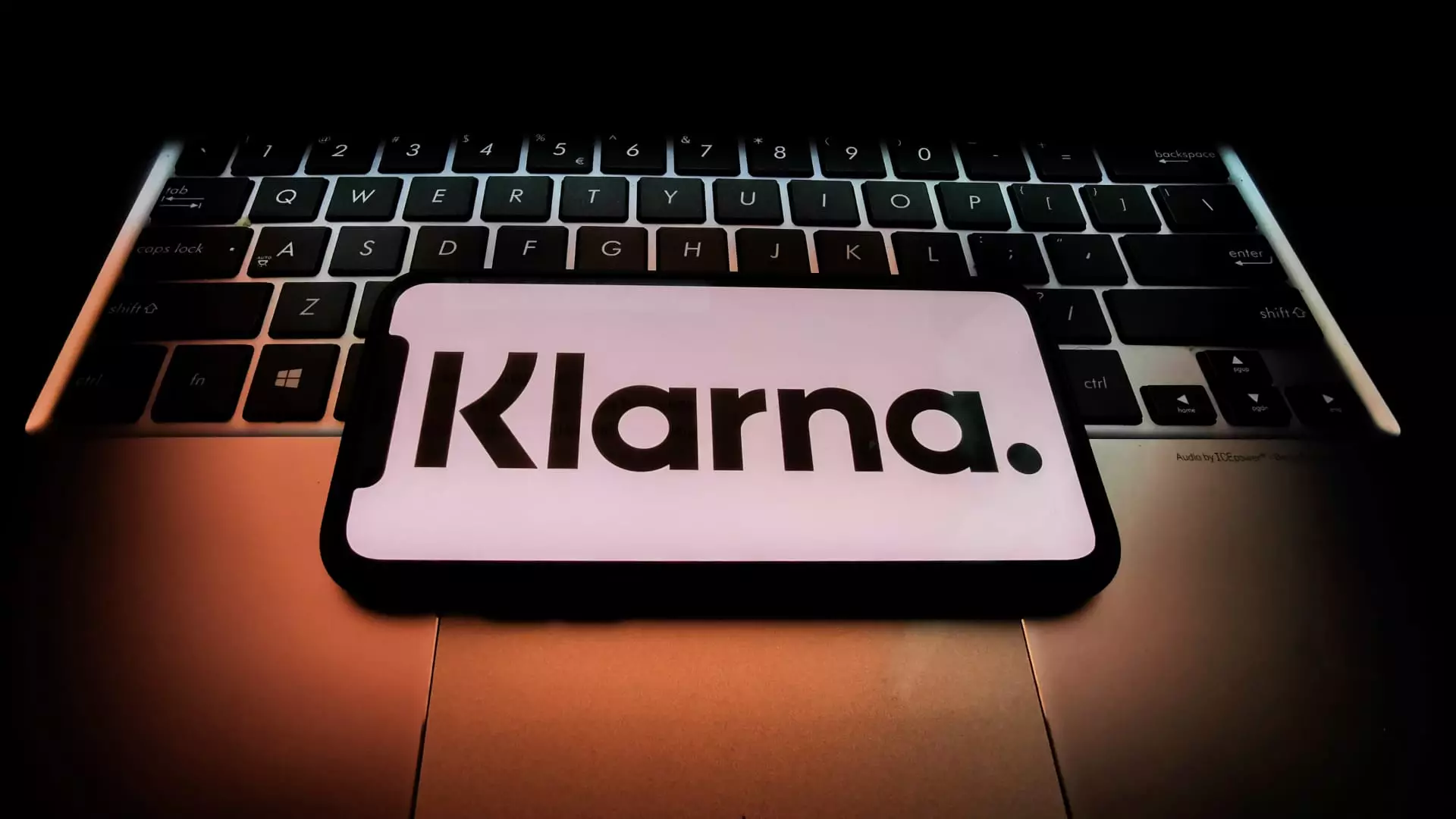In a significant move set to reshape retail payment dynamics, Swedish fintech Klarna has joined forces with the Dutch payment processing powerhouse Adyen. This collaboration, announced recently, aims to integrate Klarna’s highly popular buy now, pay later (BNPL) service into brick-and-mortar outlets. Store owners utilizing Adyen’s payment terminals will now offer customers the flexibility to pay in installments at physical locations, marking a pivotal shift from the traditional online-only BNPL experience.
Klarna’s entry into physical retail shops symbolizes the evolving landscape of consumer payments. The agreement will see Klarna’s payment options rolled out across more than 450,000 terminals used by various merchants partnered with Adyen. This initial launch will encompass major markets across Europe, North America, and Australia, with ambitions for broader international availability in the future. Such a strategic expansion reflects a progressive trend in the payments industry, where fintech companies aim to disrupt conventional payment methods.
Klarna’s BNPL service allows consumers to break down their purchases into manageable interest-free installments, thus providing them greater financial flexibility. Traditionally regarded as an online feature—accounting for a mere 5% of the global e-commerce market—BNPL has quickly evolved to meet the demands of the modern consumer. As shoppers seek convenience and personalization in their purchasing processes, integrating BNPL into physical retail experiences may lead to increased sales and customer loyalty.
Klarna is not alone in this mission. Competing firms like Block’s Afterpay, Affirm, Zip, Sezzle, and Zilch have also recognized the importance of in-store transactions. As consumer behavior shifts, the competition among fintech firms to capture the in-person shopping segment intensifies. The possibility of using BNPL at physical checkouts may cater to the desires of consumers who are hesitant to commit to large expenses upfront.
This initiative builds on previous collaborations between Klarna and Adyen, focusing on e-commerce payments. Klarna’s Chief Commercial Officer, David Sykes, underscored the motivation behind this move, stating the company’s ambition is to ensure that their payment solutions are universally accessible at any retail checkout. The partnership with Adyen serves as a significant leap in realizing that vision.
Adyen has similarly emphasized the need for greater flexibility during the payment process. According to Alexa von Bismarck, Adyen’s head of EMEA, providing consumers with various payment options enhances the shopping experience. As consumer preferences increasingly lean towards substantial control over payment methods, retailers must adapt accordingly, emphasizing the importance of this collaboration.
Amidst this leap forward, Klarna continues to diversify its product offerings. The recent sale of Klarna Checkout signals a strategic shift away from competing directly with major payment gateways like Stripe and Checkout.com. Instead, the firm is exploring new horizons, including a recently launched checking account-like product named Klarna Balance, which aims to integrate various financial services under one platform. This diversification is essential for the company, especially as regulatory bodies increasingly scrutinize BNPL options.
Despite its growing popularity, BNPL has faced criticism for potentially encouraging consumers to overspend beyond their means. Advocacy groups have raised concerns, and governments are stepping in with regulatory measures. In the UK, the newly elected Labour government has indicated it is developing regulatory frameworks for BNPL, addressing the rising demand for consumer protection in this evolving market.
As Klarna embarks on this cooperation with Adyen, the company is also eyeing a potential initial public offering (IPO). Although no specific timeline has been set, CEO Sebastian Siemiatkowski has indicated that a public listing in 2024 remains a possibility. The successful integration of BNPL services into physical retail could provide Klarna with a solid foundation for growth leading up to this anticipated milestone.
The partnership with Adyen not only enhances Klarna’s service portfolio but also positions the firm at the forefront of a rapidly changing retail environment. As consumers increasingly favor financial flexibility—both online and offline—the collaboration could prove transformative, ushering in a new era of shopping experiences.
As Klarna makes its mark on in-store payment solutions, the potential to reshape consumer shopping experiences is substantial. By leveraging strategic partnerships and focusing on consumer preferences, Klarna and Adyen are paving the way for a more flexible future in retail payments. As this dynamic continues to unfold, both companies will need to navigate the challenges posed by regulation and market competition to capture the full potential of BNPL in physical retail environments.

